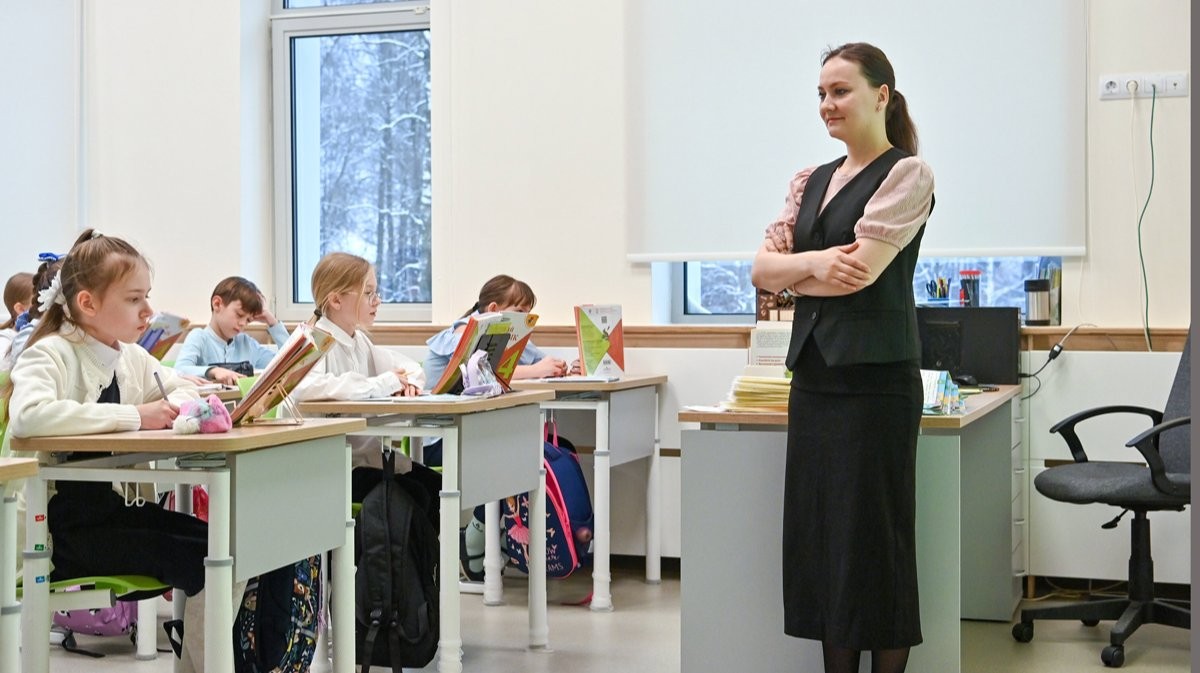Teacher crisis in Russian schools
Only 42% of graduates from teacher training colleges go on to work in schools, and many teachers are leaving the profession. Disparities in pay between Moscow and the country's suburbs are a major factor, as is the increasingly ideological approach of the entire education system.
Moscow (AsiaNews) - Teacher training colleges are in serious crisis in Russia: a quarter of students drop out before completing their studies, and even among those who graduate, only 42% go on to work in schools, according to Labour Minister Anton Kotjakov. According to his calculations, at least 200,000 teachers need to be trained or returned to the profession by 2030.
The agency Novaya Gazeta Evropa sought to hear the voices of teachers to understand the reasons for the current difficulties. Aljona, 26, works in a school in the Moscow province while still trying to graduate from the faculty of fine arts. In order not to miss out on the school, she was given two extra days off per week, teaching drawing to children. She manages to do her job with satisfaction, “the children like my subject and it's not one of the subjects they have to take in their final exams, it's a way to escape from all the bad things in the world around us”. Much less enjoyable is the bureaucratic side, with all the planning and compulsory meetings, and the most annoying thing “is having to filter all social media content to avoid any misunderstandings”.
In the end, Aljona left the school, which, in addition to the anxiety of getting into trouble, ended up being too low-paid. Salaries are only increased for those who teach in Moscow schools or agree to work “in the most remote areas of Russia”. This year, the teaching staff expected a salary increase of more than 13%, as promised, but this commitment was not kept due to high inflation and the impossibility of containing it with financial measures, given that the school administration is managed by the regions.
Irina, 28, also started teaching Russian language and literature while still preparing her thesis at university, in order to become independent from her parents and live on her own. Initially, she enjoyed her relationship with her pupils, but she began to feel disappointed with those over the age of 10 due to their vulgarity and aggressive behaviour, which was certainly typical of their age but also a consequence of the relentless “patriotic exercises” and paramilitary training. On the advice of the school management, she tried to get the parents to come and supervise their children directly in the classroom, but this did not work either, especially as some of them, mainly the fathers, took their children's side. After three months, Irina could not take it anymore and left her job before the end of the year.
Teachers' salaries vary greatly, from €1,500 per month in Moscow schools to €250 in the Ivanovo region, just 300 km from Moscow. There are also clear disparities in Siberia, such as the €400 in the Altaj region compared to €1,300 in the neighbouring regions of Magadan and Chukotka, which receive more substantial state subsidies. The report recounts similar experiences of many other young teachers, disappointed by insufficient salaries or the ideological approach of the entire system, which often forces teachers to monitor students' messengers and social networks.
Textbooks for the various subjects are unique and compulsory, unlike a few years ago when there was a wide choice, and this even applies to scientific subjects that should not have content imposed from above, as is very evident in history and literature. In mathematics, a subject such as “probability and statistics” must also be taught, but only to be used to test consent to “great values”.
Moreover, “discussions about important things” cannot be skipped, repeating endlessly the fundamental principles of state rhetoric. Some teachers use this hour of “patriotic education” for extra lessons, concerts or competitions, trying to present them as “useful for the state of mind” of the children, but then the axe of higher orders falls on them, and it almost always ends in abandonment or dismissal, leaving Russian schools at the mercy of the most trite and depressing mass education.
15/07/2023







.png)










